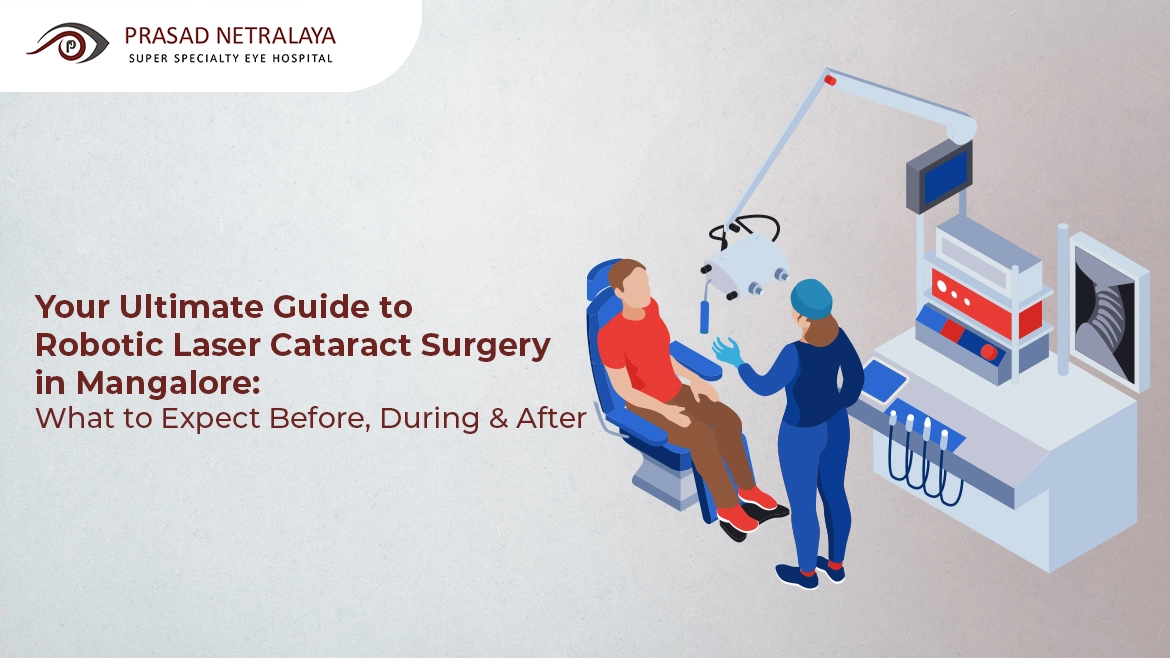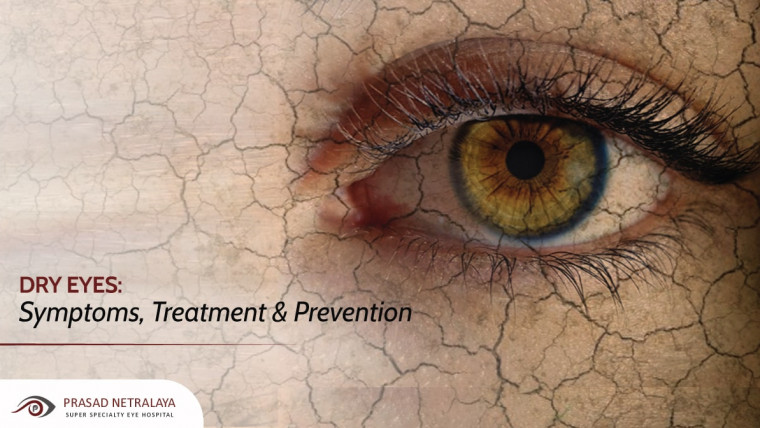Traditional cataract surgeries have long been a reliable solution for restoring vision, and delivering exceptional outcomes. But what if there was a faster, more precise way—one that reduces the chances of human error? Introducing robotic laser cataract surgery. With small laser-guided incisions and ultrasound-assisted lens removal, robotic laser cataract surgery offers a smoother, safer experience, allowing for faster recovery and even better outcomes.
Robotic laser cataract surgery represents the future of eye care, today. With the power of advanced technology, it truly outdoes the role of traditional cataract surgeries!
Table of Contents
What is Robotic Latest Cataract Surgery?
Robotic Latest Cataract Surgery is a cutting-edge procedure that uses advanced laser systems to treat cataracts instead of highly invasive materials like blades. In this procedure, a femtosecond laser machine is docked onto the eye, and an imaging system captures detailed pictures to guide the surgery.
The laser makes a small incision in the eye to access the cataract and ultimately softens and breaks down the cataract. These key robotic steps are performed just under 30 seconds.
One of the most appealing aspects of robotic laser cataract surgery is that it eliminates the need for injections, stitches, or eye pads. The procedure involves a tiny, self-sealing incision of just 2.2 mm that reduces discomfort and speeds up recovery.
Looking for a list of the top cataract surgery doctors in Mangalore? Click here to learn more!
What to Expect Before the Procedure?
Here’s everything you need to expect before you get the robotic laser cataract surgery done!
1. Managing Underlying Health Conditions
If you have other health conditions, such as diabetes or high blood pressure, your ophthalmologist may require these to be well-managed before proceeding with the surgery. Ensuring your overall health is in good condition is crucial for a smooth procedure and recovery.
2. Comprehensive Eye Examination
Your ophthalmologist will conduct a thorough examination to check how severe your cataract is and as per the results, they decide if you are suitable for the surgery or not. This process involves multiple tests to measure eye pressure, pupil dilation, and a detailed assessment of the eye’s internal structures.
3. Consultation and Scheduling
After the examination, you’ll meet with your ophthalmologist to discuss the surgical plan, including the type of intraocular lens (IOL) to be implanted. Once everything is agreed upon, your surgery will be scheduled.
4. Pre-Surgical Preparations
- Medications: Your doctor may prescribe eye drops to reduce inflammation and prevent infection. Make sure to take these medications as directed by your doctor.
- Fasting: You will mostly be asked to fast for a certain period, usually starting from midnight the day before surgery. During this time, you must refrain from eating or drinking.
- Personal Care: On the day of surgery, wash your face thoroughly with soap and water, but avoid using perfumes, lotions, or makeup. It’s also recommended to leave jewelry at home to avoid complications.
Need an updated list of the top cataract surgery doctors in Udupi? Just click here to find out!
What to Expect During Robotic Laser Cataract Surgery?
During the robotic laser cataract surgery, you’ll first receive numbing eye drops to ensure you have a pain-free experience. A femtosecond laser is then incorporated to make precise, blade-free incisions in your cornea and lens capsule. After which the cataract is softened with ultrasonic waves and broken into smaller pieces for easy removal. Once the clouded lens is removed, a new artificial intraocular lens (IOL) is implanted, restoring your vision.
This entire process is guided by advanced technology, ensuring high accuracy and less discomfort.
What to Expect After the Procedure?
1. Immediate Recovery
- Monitoring: After surgery, you will be examined and observed for a short while. This is to ensure there are no immediate complications.
2. Post-Operative Care
- Medications: Continue using prescribed eye drops to heal and prevent any type of infection
- Eye Protection: Wear protective eyewear, such as goggles or transparent wrap-around glasses, for the first week. Also, make sure to use sunglasses to shield your eyes from bright light and potential irritants.
- Hygiene Precautions: Avoid letting dirty water, dust, or dirt enter your eye for the first 2-3 weeks. Ensure to take body baths below the chin and use a clean, wet towel to wipe your face.
- Activity Restrictions: Avoid strenuous activities like heavy lifting, and swimming for at least a week, or as advised by your doctor. Refrain from rubbing or touching your eye for the first month post-surgery.
3. Follow-Up Appointments
- Scheduling Visits: Arrange follow-up appointments with your ophthalmologist to monitor healing and address any concerns. Typically, cataract surgeons will contact you 2-3 times during the first month post-surgery. A final check-up at one month will assess your healing progress and allow for the prescription of glasses if necessary.
At Prasad Netralaya, we prioritize your clear vision above all else!
Since its inception in 2002, Prasad Netralaya has expanded to offer a wide range of clinics addressing various eye ailments, including cataracts, myopia, squint alignments, glaucoma, and more.
With advanced technology and a team of expert eye specialists, you can trust that you’re in skilled hands. Schedule your consultation today and bid farewell to cataracts with our advanced laser treatment for eyes. Let’s bring your vision back into focus!
Frequently Asked Questions (FAQs)
How many days of rest are needed after laser cataract surgery?
The downtime post cataract surgery is for a short duration. However, it varies on the individual patient’s condition. Most patients can return to normal activities within 1 to 2 days but complete recovery may take a few weeks.
What are the disadvantages of robotic laser cataract surgery?
Disadvantages of laser cataract surgery include higher costs, limited availability in some clinics, and the need for surgeons to receive specialized training.
Who is not a good candidate for robotic laser cataract surgery?
Individuals under 18, pregnant or nursing women, those on certain medications and those facing serious health issues may not be suitable candidates.
Which is better, cataract surgery or laser?
Both traditional and laser-assisted cataract surgeries are effective, however, it entirely depends on the patient’s specific eye condition and the severity of the cataract. Laser-assisted cataract surgery may be more suitable in certain complex cases, such as with dense cataracts or when the patient has astigmatism.
What not to do before laser eye surgery?
Avoid wearing soft contact lenses for 3 to 7 days and hard lenses for 7 to 14 days prior to surgery. Also, follow your doctor’s advice regarding certain medications.
Dr. Vikram Jain, M.S. had his medical training (MBBS) from Kasturba Medical College, Mangalore, India. He did his master’s in Ophthalmic surgery from Kasturba Medical College, Manipal. He currently manages the Glaucoma department of Prasad Netralaya hospital.



